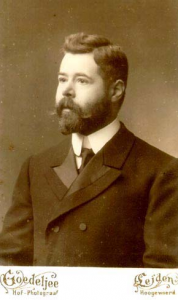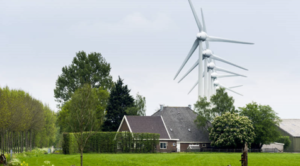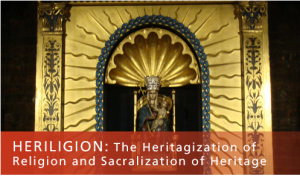Populism, Social Media and Religion
Project leader: Ernst van den Hemel
Funding: the Royal Netherlands Academy of Arts and Sciences
Staff: Irene Stengs, Irene Götz
Description:
In the 21st century, the rise of populism continues to offer challenges for both academia and society in general. Movements such as the Dutch Freedom Party (PVV) or German protest movement Pegida do not fit easily in existing paradigms like left / right or secular / religious and in general do not publish many ideological texts. As a result, a number of elements of populist movements are hardly studied in detail. One of such elements is the tendency of right-wing populism in Western Europe to not only be vocal about a dislike of ‘Islam’ but to also highlight the importance of (Judeo-)Christianity in the West.
The research project ‘Populism, Social Media and Religion’ that starts this autumn (October 1, 2018) at the Meertens Institute aims to provide insight into the role of religion in populist movements in the Netherlands and Germany. Specifically this project focusses on the references to Judaism and Christianity. How are notions such as ‘Judeo-Christianity’ and ‘Christian values’ defined and discussed in these movements? How are these notions defined online, how do they circulate and how do they relate to larger debates and developments regarding national identity? This project combines discourse analysis, ethnographic methods and social media analysis. More particularly, the project aims to analyze Facebook and Twitter data.
This project is funded by a grant from the Royal Netherlands Academy of Arts and Sciences as part of their program to stimulate new and innovative research inspired by the Dutch National Research Agenda. The project sets up a collaboration with different routes of the National Science Agenda and with the Institut für Volkskunde / Europäische Ethnologie of the Ludwig-Maximilians-Universität München and the Digital Methods Initiative at the University of Amsterdam.
The project is led by dr. Ernst van den Hemel, researcher at the Meertens Institute. Associated researchers include prof. dr. Irene Stengs (professor of Ritual and Popular Culture, Vrije Universiteit Amsterdam & Meertens Institute), and Irene Götz ( Ludwig-Maximilians-Universität München).
Intangible heritage and museums
Project manager: Sophie Elpers
Description:
As a result of the UNESCO Convention for the Safeguarding of the Intangible Cultural Heritage, which was ratified by the Netherlands in 2012, various actors such as government institutions, “heritage professionals”, heritage bearers, and museums, interfere in the preservation of everyday culture. They form an (emotional) network that is determined by meaningful power relationships.
In the study, attention will be given to the sphere of influence that this network has to answer questions about heritagization processes. These processes are closely connected to questions surrounding collective identities, where claims are often made to “national solidarity”. The research pays particular attention to the role of museums and heritage bearers as well as their mutual relationships and negotiations in the creation of heritage. A relevant question for this line of research is how the cohesiveness and differences between tangible and intangible heritage are handled.
The new rural. Material expressions of countryside cultures
Project manager: Sophie Elpers
Description:
The “rural”, a topic currently receiving ample attention, concerns (collective) imagined representations of the countryside and concrete, everyday cultural expressions, as well as the interactions between the two. Drastic changes in the countryside have resulted in new perceptions of everyday rural lifestyles and a wide variety of associated images.
The research investigates these changes and their effects, exploring how (urban and non-urban) people perceive rural cultures and construct their identities vis-a-vis ’the rural’. Material culture will be a central focus of attention, taking architecture, construction and ‘dwelling’ as cultural expressions, in which questions of individual, group, local, regional, and national identities are addressed.
Moreover, work is being done on a second, revised version of the Encyclopedia of Vernacular Architecture of the World. The latter will place the research into material culture of the Dutch countryside in an international comparative perspective.
Visibility and invisibility: color blindness, race, and the power of images in the Netherlands
Project manager: Markus Balkenhol
Description:
Virtual networks and the images that circulate within them are not only part of everyday life, but they also influence to a significant extent the way how people understand themselves in relation to others.
In this project, Markus Balkenhol investigates the role of images in constructions of identity in the Netherlands. For example, he focuses on discussions about colonial monuments, such as the statue of Anton de Kom or the former Van Heutsz monument, both in Amsterdam and the continuing controversies surrounding the figure of Black Pete (Zwarte Piet).
Black Movements: black Dutch in the Atlantic world

Meet up ‘Black lives matter in the Netherlands’ at ‘Pakhuis de Zwijger’, Amsterdam – December 7, 2016
Project manager: Markus Balkenhol
Description:
As part of the joint research program of the KNAW Humanities Cluster in Amsterdam, entitled “Impact of Circulation”, Markus Balkenhol researches social movements for the civil rights of “black Dutch”.
Specifically, he researches the influence of international black movements (the Civil Rights Movement, BlackLivesMatter, Rhodes Must Fall) on organizations of Dutch people of African descent. This project has both an ethnographic and historical component.
The ISEBEL project
Project leader: Theo Meder
Funding: The NWO program Trans-Atlantic Digging into Data
Staff: Theo Meder, Christoph Schmitt, Holger Meyer, Tim Tangherlini
Description:
The ISEBEL project is a Trans-Atlantic Digging into Data project in which three folk narrative parties cooperate: Theo Meder from the Meertens Institute in Amsterdam, Christoph Schmitt and Holger Meyer from the University of Rostock and Tim Tangherlini from the University of California, Los Angeles.
ISEBEL is short for Intelligent Search Engine for Belief Legends. ISEBEL is going to be a search engine with visualization tools that makes it possible to search in several folktale/folklore databases simultaneously, starting with the Dutch Folktale Database, the Danish Folktale Database and the Mecklenburg Folklore Database (but expandable with story material from, for example, Sweden, Norway, Iceland and Flanders).
The project starts on September 1, 2017 and will last for three years. Research will mainly focus on traditional legends, i.e. the older belief legends about supernatural phenomena and beings, like trolls, giants, gnomes, sorcerers, witches, mermaids, werewolves, fortune tellers, ghosts etc.
The aim is to perform comparative researches on the variation in oral transmission over time and place. What legends can be found in the coastal North Sea and East Sea area and can they be classified as true migratory legends? What variation can be found among these legends? Are there legends to be found that are unique for a certain region, and how could that be explained? Is there a connection between stories about underground corridors and the presence of buildings like monasteries, churches and castles? Can we find an overall division in gender in storytelling – is telling legends most likely a male preoccupation? And if women tell legends, what are the most common topics then, and how do we need to explain this?
ISEBEL envisions to collect and analyze big folktale data and to explain the distribution and variation of traditional folk belief on a large geographical scale.
HERILIGION: The Heritagization of Religion and Sacralization of Heritage in contemporary Europe
Project leader: Oscar Salemink
Funding: HERA (Humanities in the European Research Area)
Staff: Ferdinand de Jong, Anna Niedźwiedź, Maria Clara Saraiva, Irene Stengs, Ernst van den Hemel
Description:
In June 2016 HERILIGION has started. HERILIGION is an international project that tries to understand the consequences of heritagization of religious sites, objects and practices which were not considered heritage before. Heritagization may provoke tensions as it involves a secular approach to religious matters. On the other hand, secular sites, objects and practices get almost a sacral meaning. This project will investigate possible tensions between these different forms, religious and secular, of sacralizing heritage.
Heritage and religion are studied by different disciplines. By combining the knowledge of both fields of study HERILIGION hopes to produce new insights which can be used to understand, manage and defuse tensions, benefiting both religious and heritage constituencies in Europe.
The research will take place at religious and heritage sites in Denmark, the Netherlands, Poland, Portugal, and the UK, using primarily ethnographic methods. Each country has its own area of research. HERILIGION will compare these places with each other in order to offer a more general, representative theoretical analysis of heritagization in Europe.
In the Netherlands, HERILIGION will focus on the different performances of Passion plays: ‘Passion for the Passion’. This subproject will be executed at the Meertens Institute by Irene Stengs and Ernst van den Hemel and in joint affiliation with Museum Catharijneconvent in Utrecht.
‘Passion for the Passion’ is concentrated around three forms of expression: Bach’s Matthew Passion, the open-air Passion plays performed all over the country and the annual performance (since 2011) of ‘The Passion’, a contemporary musical Passion play in the streets of a Dutch city on Good Friday, broadcast live on primetime national television. The research will consist of ethnographic fieldwork, concentrating on performers, audience and organizers of passion performances.
More information: go to the website of HERILIGION
RAHRP
Project leader: Peter Jan Margry
Funding: Meertens Instituut
Description:
RAHRP (Religious and Alternative Healing Research Platform) is a platform that aims at connecting researchers in the area of religious, alternative and spiritual healing and other closely related fields. For that reason RAHRP creates for researchers the possibility to meet one another and to exchange knowledge by organizing workshops and conferences.
Furthermore RAHRP pays attention to recent scholarly publications and to interesting newsfacts in this field. Apart from that, RAHRP itself has set up a ‘Research Project on Alternative Healing in the contemporary world’ that eventually will be completed with an publication.
More information: go to the website of RAHRP
The construction of local identities through cultural practices
Project leader: Leonie Cornips
Staff: Irene Stengs
Funding: Meertens Instituut/NIAS
Description:
This project focuses on ‘languageculture’, a concept that highlights the interrelationship of culture and language in the formation of local identity. This implies that linguistic elements (choice of language, vocabulary, grammar) are an inherent aspect of cultural practices specifically related with the local (celebrations, foods, sports, etcetera). By studying how culture and language practices reinforce each other in processes of local identity formation; the choices that are made herein; and who uses these practices when, where and why, the researchers aim at gaining insight in the power relationships between and within economical, political and cultural centres and peripheries. Languageculture in the province of Limburg will provide the empirical casus for this study. By means of fieldwork, the project will focus on the shaping and experiencing of Limburgian identity as well as various more local identities, among inhabitants and outsiders.
Oral Transmission

The Dutch linguist Gerrit Jacob Boekenoogen collected at the end of the 19th century many Dutch folktales.
Source: Wikipedia
Project leader: vacant
Staff: Theo Meder, Martine de Bruin, Maarten van der Peet, Ellen van der Grijn, Marianne van Zuijlen
Funding: Meertens Instituut
Description:
Oral transmission of folksongs and folktales implies variation. On the other hand, some elements of the song or the tale do not change over time. This research focusses on the question which structural and cognitive elements do change and which elements remain stable. Moreover, the question why a song or a tale is still recognizable despite the variation will also be studied.
Under the umbrella of ‘Oral transmission’ several project groups work together, among others ‘Tunes & Tales’ and ‘FACT’ (to read about this projects: go to ‘Projects archive’).






